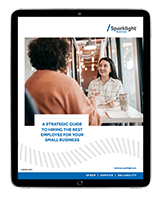
Personalities and Work: Why Some Teams Thrive and Others Struggle
Why do some workplace teams seem to hum along effortlessly while others grind and clash—even when the talent and resources are similar? For many small to mid-sized businesses, the answer often lies not in the work itself, but in who’s doing it—and more specifically, in how different personality types approach collaboration, communication, and problem-solving.
Understanding personality differences at work isn’t just a “nice to have.” It’s a competitive advantage. Teams that recognize and respect personality diversity at work communicate better, reduce friction, and play to each other’s strengths. That’s where personality assessments can help.
The Case for Understanding Workplace Personalities
For business owners and managers, building a cohesive team can feel like art and science combined. Personality frameworks give you the data behind that intuition. They can illuminate:
- Motivation: What drives each person’s energy and satisfaction?
- Communication style: How do they best share ideas or feedback?
- Conflict triggers: What situations are likely to cause stress or frustration?
- Collaboration preferences: Do they thrive on group brainstorming—or prefer structured independence?
When you understand these patterns, you can better structure roles, projects, and communication flows to keep everyone engaged and aligned. According to Gallup, teams that focus on individual strengths see a nineteen percent increase in sales and twenty percent higher profit compared to those that don’t.
Popular Personality Assessments for Teams
Here’s an overview of the most commonly used assessments for small to mid-sized businesses:
Myers-Briggs Type Indicator (MBTI)
Perhaps the most well-known personality tool, MBTI categorizes people into 16 types based on four dimensions: introversion/extraversion, sensing/intuition, thinking/feeling, and judging/perceiving. It helps teams understand how members gather information and make decisions.
Best for: Improving communication and team awareness.
DiSC Assessment
DiSC evaluates individuals on four behavioral styles: Dominance, Influence, Steadiness, and Conscientiousness. It’s widely used in workplaces to enhance collaboration and leadership development.
Best for: Identifying communication differences and conflict styles.
Example: A “D” might want direct answers, while an “S” may prefer steady, consensus-based discussion.
CliftonStrengths (formerly StrengthsFinder)
Developed by Gallup, this assessment focuses not on weaknesses, but on identifying an individual’s top strengths across 34 talent themes such as “Strategic,” “Achiever,” or “Empathy.”
Best for: Building teams around complementary strengths.
Enneagram
The Enneagram divides personalities into nine core types, each with its own motivations, fears, and growth paths. It’s popular for developing emotional intelligence and leadership empathy.
Best for: Deep personal and interpersonal understanding, especially in small, tight-knit teams.
Big Five Personality Test (OCEAN)
A research-based model that evaluates openness, conscientiousness, extraversion, agreeableness, and neuroticism. It’s widely respected in academic psychology for its scientific validity.
Best for: Understanding traits that affect workplace resilience and adaptability.
How to Apply Personality Assessments in Your Small Business
While these tools can be illuminating, they’re not meant to label employees. Instead, think of them as conversation starters and coaching tools. A few best practices:
- Keep it voluntary and confidential. Let employees choose whether to share their results; don’t use personality data for hiring or evaluation.
- Use it to balance teams. Pair a visionary idea generator with a detail-oriented implementer. Diversity of style can fuel innovation.
- Train managers to apply insights. Tests alone won’t change culture, but the data they reveal can serve as a foundation for managers attempting to do so.
- Integrate into onboarding and development. Understanding personalities from day one helps set expectations and strengthen team cohesion.
In smaller organizations, every person’s contribution carries extra weight—and so do interpersonal dynamics. By investing in personality assessments and open discussions about working styles, business owners can unlock hidden potential and reduce the friction that slows growth, paving the way for progress.
The trends, insights, and solutions you need to grow your business.
By signing up, you’re subscribing to our monthly email newsletter, The
Wire. You may unsubscribe at any time.
Your information stays safe with us. Learn more about our privacy
policy.











![[#MSP_NAME#] Logo](/themes/sparklight_business/images/transition-logos/migration-banner-logo-[#MSP_CD#].png)
